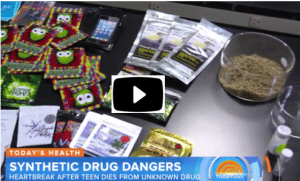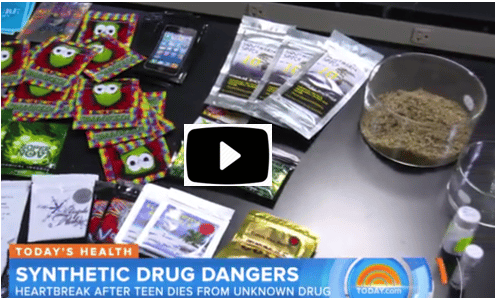Whether you have never touched a beer or you once were the life of the party, you were young once and you know that drugs and alcohol use will inevitably come up in teenage conversations. If you want to ensure your kids remain safe and responsible, you should know what teens use, why they choose certain drugs and how you can help prevent your kids from following suit. The conversation with your kids needs to be ongoing.

Why Teens Use Drugs
There are many reasons why teens try drugs. Often, it’s a combination of peer pressure and wanting to satisfy their curiosity. For others, it’s a way to show independence, feel more grown up or to relieve boredom. Still other teens use drugs to ease pain of some unresolved emotional problems. Several risk factors make a teen more likely to use drugs. They include being a victim of bullying, kids of a parent that uses or if a sibling who is actively using drugs. Many times kids with low self-esteem turn to experimenting with drugs. Teens are less likely to use if they have a strong parental bond, are active in extracurricular activities or spend time around positive role models.
Synthetic Marijuana: What Is That?
Marijuana abuse continues to reign at the top of every list for the most abused illicit drugs for teens. We also see this as a common gateway drug to stronger addictions. In recent years, synthetic marijuana  has become very popular among teenagers and most don’t view it as a threat. Commonly referred to as spice or K2, the chemical makeup of synthetic marijuana changes often. Therefore, it is not uncommon for someone to have an adverse reaction to the drug even if they’ve used it before. Because there is no recommended dosage, it’s easy to overdo it. For this reason, it’s important to understand the dangers of synthetic marijuana. Someone who has overdosed may begin vomiting, have trouble breathing or suffer from a rapid heart rate. Other symptoms include certain psychosis, anxiety or thoughts of suicide.
has become very popular among teenagers and most don’t view it as a threat. Commonly referred to as spice or K2, the chemical makeup of synthetic marijuana changes often. Therefore, it is not uncommon for someone to have an adverse reaction to the drug even if they’ve used it before. Because there is no recommended dosage, it’s easy to overdo it. For this reason, it’s important to understand the dangers of synthetic marijuana. Someone who has overdosed may begin vomiting, have trouble breathing or suffer from a rapid heart rate. Other symptoms include certain psychosis, anxiety or thoughts of suicide.
What To Say to my Child About Drugs
Between the ages of 13 and 17, your children probably begin have friends who use alcohol or drugs, They may not admit to that but we encourage you to take our word for it. By the age of 16 these kids are now driving, making it easier for them to find drugs and have “the party” while driving around. Continuing having the conversation about the dangers of drugs and alcohol use even if it appears they have tuned you out. Make sure they know that most kids are avoiding drugs and they should avoid the traps of pier pressure. The National Institute on Drug Abuse tells us that less than 15% of High School kids are using drugs and share what the consequences will be if they are caught using drugs. We encourage parents and caregivers to have consequences in the home should they be caught using drugs.
Make your expectations clear, but also make sure your children know you are an ally and want what is best for them. They should feel comfortable calling you for a ride if they ever find themselves in a situation where their driver has been drinking or using drugs. It also helps to get to know your kids’ friends and those friends’ parents.
Of course, there is no guarantee your child will never drink underage or remain drug-free. Experimentation is just part of life. However, by keeping an open mind and a clear line of communication open, the chances your kids will say no to drugs is much greater.







